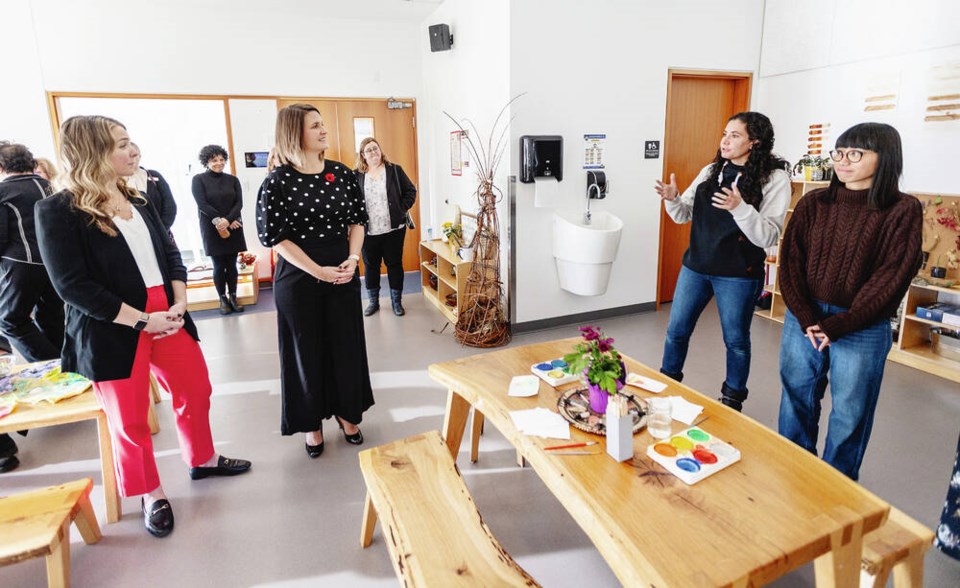Early-childhood educators working in licensed child-care facilities in B.C. will receive a raise of $2 an hour starting Jan. 1, the province announced Monday.
The raise follows previous boosts totalling $4 an hour since 2018, bringing the median hourly wage for ECEs in B.C. to $28, according to the Education and Child Care Ministry.
An estimated 12,000 ECEs will receive the latest raise from those employers who have registered with the province.
ECEs with an infant-toddler educator or special-needs educator certification through the ECE registry can apply for an additional $2,000 per year, while ECEs holding both certificates will be eligible for another $3,000 per year.
Sharon Gregson, spokesperson for the Coalition of Child Care Advocates of B.C., said child care has traditionally been a low-wage sector, so the $2 per hour enhancement is welcome news.
She said the next step is to ensure that the wage enhancement, now totalling $6, is not just a temporary budget item for the provincial government.
The subsidy comes through a federal/provincial partnership under the Canada-British Columbia Canada-wide Early Learning and Child Care Agreement. The federal government is contributing $4.3 billion over five years, through March 2026, for early learning and child care in B.C.
The provincial government is also funding ECE dual-credit programs in 30 school districts and new student ECE spaces at post-secondary institutions to go with legislation to help internationally trained ECEs, engineers, teachers and others find work faster.
The latter legislation will give more value to international work experience and help people get their provincial credentials faster.
Susanne McMillan, a graduate of Camosun College’s early-learning and care program, said the raise and grants will help keep ECEs in the field, noting ECEs require a minimum of two years of post-secondary education.
Lori Zehr, Camosun’s dean of the School of Health and Human Services, said enhanced wages and the two new grants for specialized training recognize the work of early childhood educators in making a difference in children’s lives.
More than 12,000 job openings for certified ECEs and ECE assistants are expected in B.C. over the coming decade, the province said.
“ECEs play a vital role in children’s early development and are critical for families and our economy, and we are taking steps to ensure their compensation continues to grow,” said Minister of State for Child Care Grace Lore. “We look forward to introducing and refining a wage grid as we test a new funding model to help us continue to build child care as a core service here in B.C. “
>>> To comment on this article, write a letter to the editor: [email protected]



